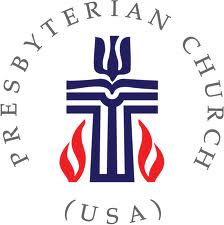
So the Jews have managed to eke out another victory over the advocates of disinvestment in Israel in the Presbyterian Church USA. But last night's 333-331 General Assembly vote against withdrawing church funds from three companies that allegedly contribute to the oppression of Palestinians in the occupied territories hardly signals an end to the war.
As a practical matter, the disinvestment campaign in mainline Protestantism seems ill-calculated to encourage the Israeli government to do the right thing. On the other hand, the advocates seem less interested in changing facts on the ground than in presenting a prophetic witness to what they see as grave injustice. And there can be no doubt that they're making headway with their communities. I wouldn't bet against disinvestment when it comes up again at a PCUSA conclave.
It is important to recognize that the mainline campaign has to do with more than concern about Israeli mistreatment of Palestinians. At its heart lies theological resistance to the idea that God's covenant with the Jewish people involves a land title.
A few years ago, Eugene Korn, then serving as director of Jewish affairs at the American Jewish Congress, joined some mainline ecumenical officials on a trip to Israel when the group visited the Sabeel Ecumenical Liberation Theology Center, a small Jerusalem think tank that has played a major role in the disinvestment campaign. Later, Korn reported on his conversation with the director, an Anglican clergyman named Naim Ateek:
He explained that he comes from Beit She’an in the Jordan Valley, and claims his family was evicted from there in the War of Independence. “Israel was born in sin. I can never recognize the right of Israel to exist,” he shouted. When I challenged him about the Bible’s view of the Land of Israel being essential to God’s covenant, Ateek told me that any theology that takes land seriously is “immature.” In one fell swoop he had delegitimized Judaism and the concept of the Jewish people.
By contrast, evangelical Protestants are more than happy to to take land as seriously as the Jews, whether because of a complex End Times theology or simply because of God's promise to Abraham in Genesis 15. Yet evangelicals have a hard time accepting that the original covenant is sufficient for Jews to get to heaven. Mainline Protestants, by contrast, have pretty much rejected the old-time supersessionism and allow Jews into heaven by way of a dual covenant theology.
Jews thus get to take their pick: the Protestants who grant them The Land or those who grant them Eternal Peace. Land for Peace or Peace for Land?




